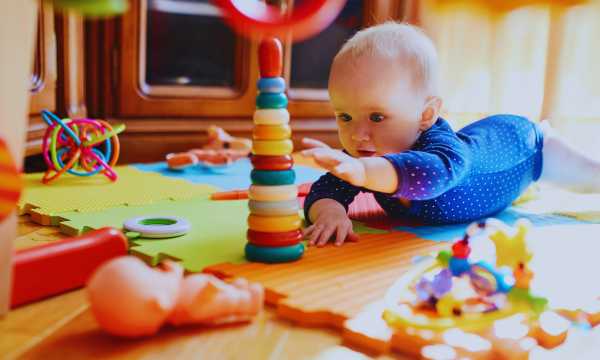Newborn care is one of the biggest responsibilities that parents face.
Ad
It’s natural to have doubts about how to ensure your baby’s well-being. From the very first days at home, every detail matters.
Newborn care goes far beyond daily tasks like changing diapers and bathing. It involves building a strong and secure bond, learning about the baby’s needs, and creating a routine that promotes the well-being of everyone.
In this article, you’ll find all the necessary information to care for your newborn safely and effectively. We’ll examine the essential areas that deserve attention to ensure your child’s healthy development
1. Newborn Feeding
Feeding is one of the first concerns in newborn care. In the first few months, breast milk is the main source of nutrients. It provides everything the baby needs to grow strong and healthy, as well as strengthens the immune system.
If breastfeeding is not possible, it’s essential to follow the pediatrician’s advice to choose the right formula. Each baby has specific needs, and it’s important to meet those needs in a personalized way.
Pay attention to the baby’s signs of hunger and fullness. Feeding them regularly and in adequate amounts is essential for their well-being and development.
2. Hygiene and Basic Care
Hygiene is an essential part of newborn care. Keeping the baby clean and comfortable contributes to their health and well-being. Bathing should be done daily, using products specifically designed for the delicate skin of newborns.
The umbilical cord requires special care until it heals completely. Keep it clean and dry, following the pediatrician’s instructions. Additionally, frequent diaper changes are crucial to avoid skin irritations.
The baby’s nails grow quickly and should be trimmed regularly to prevent scratches. Use a baby-specific nail clipper, always with care and attention.
To clean the baby’s ears, use a damp cotton swab exclusively on the outer part of the ear, avoiding inserting the swab into the ear canal. Gently clean the area around and behind the ear to remove any excess wax or dirt. Make sure the area is thoroughly dried after cleaning to avoid discomfort.
3. Newborn care: Adopt a sleep routine
Establishing a sleep routine is one of the most common challenges in newborn care. Sleep is fundamental for the baby’s development, and creating a calm environment helps ensure adequate rest.
Even if the newborn’s sleep is irregular at first, with patience and consistency, they will begin to adjust to a healthy sleep routine.
Example of Relaxing Routine
In the first months, babies don’t yet have a clear sense of day and night. Be patient and gradually adjust the routine.
- Observe your baby’s signs:yawning, rubbing eyes, irritability. These are signs that they may be sleepy.
- Establish a pre-sleep routine:You can opt for a warm bath, a gentle massage, and a lullaby. This will help the baby understand that it’s time to rest.
- Feeding: Make sure the baby is fed before sleeping. Hunger can interfere with sleep.
This routine is just a guide and can be adapted to your child’s needs. Flexibility is key in the first months of life.
4. Sensory Stimulation and Development
Sensory stimulation is fundamental in newborn care. From an early age, the baby begins to explore the world around them. Providing appropriate visual, auditory, and tactile stimuli helps in cognitive and emotional development.
Talking, singing, and playing with the baby are effective ways to stimulate their senses. Use colorful toys with different textures to encourage sensory development, but always respect the baby’s rest times.
Touch is another essential aspect. Gentle massages, in addition to strengthening the emotional bond, help calm the baby and promote their well-being.

Baby development (Source Canva)
5. Health and Medical Follow-up
Newborn care also involves regular medical follow-up.
Pediatric visits are essential for monitoring the baby’s growth and development, as well as ensuring that all vaccines are administered on time.
They are also opportunities to assess the baby’s motor development, vision, hearing and weight gain, ensuring that he or she is reaching important milestones in his or her growth.
The vaccination schedule should be followed rigorously to protect the baby and ensure long-term health. Don’t hesitate to clarify all your doubts with the pediatrician, as they are the best source of information for parents.
Additionally, pay attention to any signs of discomfort or changes in the baby’s behavior. If you notice anything unusual, seek medical advice immediately.
Regular monitoring not only helps prevent and treat health problems, but also provides ongoing support for you and your baby during these crucial first months.
6. Safety and Well-Being
It is necessary to ensure that the environment in which the baby lives is safe. This includes:
- The use of safety equipment: Such as appropriate car seats Always use an approved car seat suitable for your baby’s weight and height.
- Safe Cribs: The crib must meet current safety standards. The side bars must be at a safe distance to prevent the baby from having an accident. The crib must be free of any item that could pose a danger to the little one.
- Constant Supervision during Aaily Activities: To avoid domestic accidents, protection against falls and food safety (avoid choking).
Conclusion
Caring for a newborn is a challenge that requires dedication and attention to detail. By following guidelines on feeding, hygiene, sleep, sensory stimulation, and health, you will contribute to your baby’s healthy and happy development.
Proper nutrition and meticulous hygiene are essential to ensuring your child’s comfort and growth, while a structured sleep routine helps establish a healthy pattern. Sensory stimulation not only supports cognitive and emotional development, but also strengthens the bond between parent and baby.
Doctor appointments ensure that your baby is reaching important milestones and receiving the necessary protection through vaccination. Furthermore, safety in the baby’s environment is essential to avoid accidents and ensure a safe space for their growth.
Remember that, although the first few months can be challenging, patience and love are your best tools. Trust your instincts, follow your pediatrician’s recommendations, and always be attentive to your baby’s needs.
Over time, you’ll develop a routine that works for both of you, solidifying the special bond between you and your newborn and celebrating every precious moment of this new journey.


